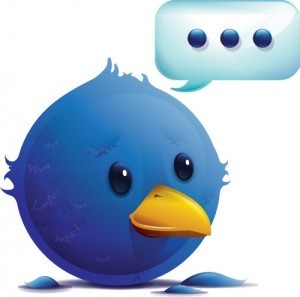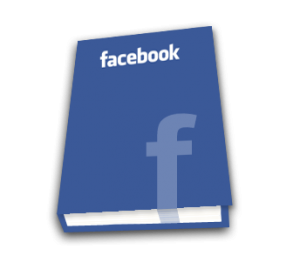Facebook or Twitter, Which Is Better for Book Promotion?
There are a lot of social media sites out there, but Facebook remains the big kahuna (estimates say it'll hit 1 billion users by August), and Twitter is no slouch with 140 million users at the last tally. Twitter seems to be particularly popular with writers, and you can find a lot of publishers and literary agents tweeting throughout the day there.
But if you're an up-and-coming author with limited time in the day, and you can only manage one social media site, where should you be? Well, as I pointed out in last week's post on self-published authors making a living e-publishing, blogging and social media may be less important than simply getting a lot of books out there, but let's assume you've got some work published, and you're struggling to get sales. Maybe you want to get involved in the social media sites; you're just not sure how to do it effectively and what sort of results you can expect. I'm going to talk about my own experience with Twitter and Facebook today, so maybe that'll help!
Twitter — My Experiences
 I've never been terribly social online (unless slaying dragons was involved — ex-Everquest/WoW addict here, yes), so I didn't flock to the social media sites when they first started getting popular.
I've never been terribly social online (unless slaying dragons was involved — ex-Everquest/WoW addict here, yes), so I didn't flock to the social media sites when they first started getting popular.
About six months before I decided to self-publish (when I was getting close to finishing my second novel, Encrypted, and was thinking that I'd query agents with it), I decided to hop on Twitter, with the vague notion that I could build up some followers that way. That'd be sure to look impressive to an agent, right? Ultimately, I picked Twitter first because I didn't think I could waste much time on a site that forced one to leave such short posts (hah?).
Well, I mostly chatted with people from my writing workshop. It wasn't until I'd decided to self-publish and do it all on my own that I got serious about marketing via Twitter. I perused lists of writers and fantasy fans to stalk, er, follow, and I started this blog at the same time. I had a hunch that Twitter wouldn't work well for selling books, but that it could be effective for driving people to my blog (this has turned out to be true, and many people who've visited my blog over the last year have ended up checking out my books).
I now have 4,000-odd followers (after the first 500, I stopped seeking them out, and just adopted a policy of following writers/readers back) and am active on Twitter every day, mostly because I can tweet from the dog park or when I'm stuck in line at the grocery store — sit-down computer time is for writing the next novel and blogging, thank you very much.
How effective has Twitter been for selling books?
Enh. I do know that people have tried my books (especially my freebies) after seeing my tweets (or tweets others have "retweeted"). Several readers have told me so. But as far as it being worth all the time I put into it, I'd say that Twitter is more for networking with other people in the business.
Don't get me wrong; there's nothing wrong with that. I've had a number of guest posts appear on popular writing/publishing blogs because I first "met" the authors via Twitter, and some influential bloggers have mentioned my posts of late. That's definitely sold some books for me, if in a roundabout way (increasing readership and links to my blog, so that my site shows up when people search for things like fantasy author or steampunk books).
An observant reader will note that Twitter seems to be intrinsically linked to my blog, and that I credit my blog with more book sales. I see Twitter as a tool to get people to visit my site. Would Twitter be as effective for me if I didn't have a blog? I don't think so.
A regularly updated blog gives me something new to plug every day on Twitter. Your followers might get tired of it if all you do is promote your book links, and, as I mentioned, I haven't found the hard sell to be particularly effective on Twitter. In fact, as a reader myself, I ignore the tweeps who do little besides try to push their books. As I've observed before, I think most of the successful authors you see doing constant book-promotion tweets are selling well despite it rather than because of it (the successful ones who come to my mind also have large bodies of work out there).
To sum up my thoughts on Twitter, I'd say do it if you enjoy it and can be a regular fixture there (tweets fall off the radar quickly, within minutes, so you'll find it tough to get much traction if you're only posting once a day — or less), and especially do it if you have a blog that you want to grow. As for simply selling books, I don't think you'll get your biggest bang for your buck here.
Facebook — My Experiences
 I was dragged kicking and screaming onto Facebook. I only made a personal account because some buddies I took a trip with held our group pictures hostage (they put them on Facebook and made it so only "friends" could see them). The punks. I made an account, but wasn't on there much, and it wasn't until last August that I made an official author Facebook fan page.
I was dragged kicking and screaming onto Facebook. I only made a personal account because some buddies I took a trip with held our group pictures hostage (they put them on Facebook and made it so only "friends" could see them). The punks. I made an account, but wasn't on there much, and it wasn't until last August that I made an official author Facebook fan page.
At first, I harassed my Twitter followers to get them to run over and "like" it, and I received my first 100 "fans" that way, but it's grown organically since then, and I'm closing on 1,000 fans (though, being a fan on Facebook only means someone gave you a thumb's up).
Where'd these folks come from? It's hard to know for sure, but I mention my blog and social media links at the end of my ebooks. Also, my Facebook page appears right after my home page on a Google search for my name. Either way it's my readers who are stopping by (I actually see very little point in asking fellow authors to "like" your page, though you might, like me, want to get a few likes in the beginning that way for social-proof purposes).
The first week after I put up the fan page, one lady popped in and said something like, "Yay, you're finally here!" and that was a reminder to me just how much Facebook is a part of some people's lives. Some folks who won't seek out blogs will spend hours there, so it's worth having a presence on Facebook, even if you're not sure how much time you'll ultimately spend there (do yourself a favor and create a separate author page so you don't have to debate whether to "friend" people back and your fans don't have to read your personal friends-and-family updates).
How effective has Facebook been for selling books?
Facebook has surprised me. I don't honestly know how many books I've sold through there (I do have a fan page "tab" that lists my freebies, but I was lazy and didn't set up bit.ly links or anything I could monitor), but I'd say it's my most active community that's entirely fan-focused. My blog gets a lot of readers, but many are authors/e-publishers and not necessarily readers of my books. My Goodreads discussion board is fan-focused, but doesn't see a lot of activity in between book releases. My Twitter followers are a mix of writers, publishers, and fans, and the fans often get lost in the mix there. I have a list for "readers," but it can be a little hard to keep track of who's who with all the conversations floating around.
When people come to my Facebook fan page, they're there because they liked my books and they want to talk about them and hear updates about them. It's turned into the place where I post snippets of dialogue and teasers from works-in-progress, because that's where I get a reaction for those things. People "like" or comment. On Twitter, those types of tweets disappear so quickly that people who aren't on that hour will probably miss them. On Facebook, new readers can find my page and surf through all the old posts.
So, does any of that sell books? I think so, because it's a way to stay in people's minds. If your recent Facebook posts appear in their timeline, they're going to remember you. In a way, posting teasers becomes part of a "product launch" formula, where you're getting people excited for the next book, so they'll want to go out and buy it as soon as it comes out.
Also, and I may try this for a week or two when I release Conspiracy (EE4) in a few weeks, you can advertise just to the people who have liked your fan page. This lets you target those who are fans of your work but who might not check in every week.
In summary, I've found Facebook to be an extremely effective way of consolidating a fan base. I do think it's ideal for pulling in existing fans, though, and making sure they don't forget about you. I'm less certain about how many new readers I get through Facebook (though, there is the viral potential; the posts your fans make on your page are visible in their timeline so their friends might see them).
Can Facebook/Twitter do anything else for you?
If you've read this far, you may have the idea that both social media sites have been useful tools for me, but that I don't attribute either with tons of book sales. You'd be right. I think, in the end, getting a lot of work out there and maybe having a freebie or two in Amazon, B&N, iTunes, etc. is going to do the most for you when it comes to selling books, but I don't regret the time I've spent on these sites. And, as I started this post talking about agents, there's one more thing worth mentioning:
From what I've seen (and I've been approached by several of these folks now), publishers and agents get weak in the knees at the prospect of an author who's already built a platform. While book sales are a bit of a guessing game for outsiders, your popularity — or lack of popularity — on Facebook/Twitter is clearly visible to others. If you're an indie and want to be courted by a publisher, or you're thinking of querying an agent, this stuff can only help you there.
Related Posts:
Best Way to a Traditional Publishing Deal: Query Agents or Self-Publish?
Self-publishing Adventures: 9 Months and 10,000 Ebooks Later…
Book Promotion Tip: The 80/20 Rule of Facebook Marketing with Cidney Swanson
 newest »
newest »
Lindsay Buroker
- Lindsay Buroker's profile
- 6196 followers





I decided I need to schedule my 'social' time and my writing time in order to make sure I do the main thing I should be doing. More books!